Iowa state ID
Introduction: Iowa State ID – A Gateway to Identification and Opportunities
An identification card (ID) is not just a tool for proving one’s identity; it's a key to unlocking opportunities in modern society. The Iowa State ID, issued by the Iowa Department of Transportation (DOT), is one of the most vital tools that residents of Iowa need to navigate through various aspects of life. From accessing government services to verifying age for legal purposes, the Iowa State ID has evolved into an essential document for all individuals living in Iowa.
In this detailed exploration, we will take a deep dive into everything you need to know about the Iowa State ID, its importance, application processes, eligibility criteria, and how it compares to other states' identification systems. We will also assess the future of state identification in an increasingly digital world.
1. Understanding the Basics of Iowa State ID
1.1 What is the Iowa State ID?
The Iowa State ID is an official identification card issued by the state of Iowa through the Iowa Department of Transportation. It is available for residents who need a valid proof of identity but do not have a driver's license. The card is primarily used for identification purposes and cannot be used to drive, but it carries the same legal recognition as a driver’s license when it comes to verifying identity.
Unlike a driver’s license, the Iowa State ID does not require the cardholder to pass a driving test, making it accessible to a wider demographic, including non-drivers, elderly individuals, and minors.
1.2 Key Features of Iowa State ID
- Personal Identification: Serves as a government-recognized form of identification.
- Photo and Signature: Includes a clear photo and signature for visual verification.
- Secure Information: Encodes critical information such as date of birth, full name, and current address.
- Holograms and Security Enhancements: Designed with security features such as holograms to prevent fraudulent use or forgery.
- Compliance with REAL ID Act: Iowa State ID is compliant with the REAL ID Act, making it a valid form of identification for federal purposes such as boarding domestic flights and entering federal buildings.
2. The Application Process for Iowa State ID
2.1 Step-by-Step Guide to Applying
To obtain an Iowa State ID, residents need to follow a systematic process that includes document submission, form filling, and visiting an Iowa Department of Transportation service center.
Step 1: Gather Necessary Documents
Applicants must provide proof of identity, residency, and Social Security number. Acceptable documents include:
- Birth certificate or passport for proof of identity
- Utility bills, lease agreements, or bank statements for proof of residency
- Social Security card or tax forms for proof of Social Security number
Step 2: Complete the Application
The next step involves filling out an official Iowa DOT ID application form, which is available online or at the service center. This form includes basic information such as name, address, and date of birth.
Step 3: Pay the Required Fees
The cost of obtaining an Iowa State ID is minimal, typically ranging from $8 to $10, depending on the applicant’s age and special circumstances.
Step 4: Visit a Service Center
Applicants must visit an Iowa Department of Transportation service center for in-person verification. During the visit, applicants will have their photo taken, and their application will be reviewed.
Step 5: Receive Your Iowa State ID
Once the application is approved, the ID will be processed, and applicants will receive it by mail. Processing times generally take a few weeks.
2.2 Who is Eligible?
Eligibility for an Iowa State ID includes:
- Iowa residents who do not have a driver’s license.
- Non-drivers of all ages, including minors who may need an ID for age verification.
- Elderly individuals who no longer drive but need identification for legal purposes.
- New residents of Iowa seeking to establish identification in the state.
2.3 Special Considerations for Minors and Seniors
For individuals under 18, the application process involves additional consent from a parent or guardian. Senior citizens may be eligible for discounted fees or renewals based on age and other qualifying factors.
3. Product Features of Iowa State ID
3.1 REAL ID Compliance
The Iowa State ID meets all the criteria for REAL ID compliance. This is crucial for residents who wish to use their ID for federal purposes like boarding domestic flights, entering military bases, or accessing federal facilities.
The REAL ID Act, enacted after the 9/11 attacks, sets minimum security standards for state-issued IDs. Iowa's State ID includes advanced security features such as holographic seals, machine-readable technology, and secure printing processes that meet these federal requirements.
3.2 Biometric and Security Features
To prevent fraud, Iowa State IDs are designed with a combination of biometric and digital security features:
- Holographic Seals: Embedded in the ID card to protect against counterfeiting.
- Barcode Technology: A unique barcode that allows quick and easy verification of the cardholder's identity.
- Magnetic Stripe and Embedded Microchips: Some versions of the Iowa State ID come with a magnetic stripe or microchip for enhanced digital verification, which is especially useful for government databases.
3.3 User-Friendly Design
The card is lightweight, durable, and compact, making it easy to carry. The font size and layout are designed for easy readability, with color-coded sections for quick visual reference. The ID card also includes important information such as blood type, emergency contacts, and organ donor status, which can be invaluable in emergencies.
4. Target Audience for Iowa State ID
4.1 Iowa Residents Without Driver’s Licenses
Non-drivers form the largest target audience for Iowa State IDs. This includes individuals of all ages who are ineligible or choose not to drive, such as teenagers under 18 and seniors who no longer drive.
4.2 New Iowa Residents
Individuals moving to Iowa from another state may require a state-specific ID for various services, including opening bank accounts, enrolling in state schools, or registering for healthcare services.
4.3 College Students
Iowa has several universities and colleges, and students from out of state or international students may need a local ID for everyday activities, such as purchasing alcohol, registering to vote, or accessing state services.
4.4 Elderly and Retired Individuals
Many elderly residents who have given up driving find the Iowa State ID an essential document. It allows them to retain their independence by serving as proof of age and identity for medical, legal, and social services.
5. Market Analysis of Iowa State ID
5.1 Market Demand
The demand for state-issued identification cards like the Iowa State ID is consistent due to its necessity in accessing various services. The introduction of REAL ID compliance has driven increased demand, as individuals are now required to update their IDs to meet federal standards. Additionally, the rise in security concerns has also prompted many people to apply for or renew state IDs.
5.2 Competitive Landscape
Iowa competes with other states in terms of ID issuance and security. However, each state’s identification card system is uniquely tailored to meet both federal standards and the specific needs of its residents. Iowa’s ID card is known for its enhanced security features and ease of access, making it a competitive option in the national landscape.
5.3 Growth Opportunities
With an increasing focus on digital transformation, there is an opportunity for Iowa to develop a mobile or digital version of the state ID. Many other states are already exploring this option to complement physical IDs with a digital counterpart that can be stored on smartphones, providing even more convenience for residents.
6. How Iowa State ID Fits in the Broader Identification System
6.1 Comparison with Other States
Compared to other state IDs, Iowa’s system stands out for its integration with the REAL ID Act and its focus on both security and accessibility. Many states have struggled with the transition to REAL ID compliance, but Iowa has maintained a smooth transition, with clear guidelines and an efficient application process.
6.2 Digital ID Initiatives
While Iowa has yet to fully launch a digital ID program, several states like Arizona and Delaware are exploring digital IDs that can be stored on a mobile phone. As technology evolves, Iowa may look into similar innovations to stay competitive in the ID market.
7. Future of Iowa State ID: Digital Transformation and Security Enhancements
7.1 The Role of Technology in Identification
As identity verification increasingly moves into the digital space, Iowa could adopt mobile identification technologies that make accessing services faster and more secure. This would reduce the need for physical cards, making it easier for residents to access services using their smartphones.
7.2 Potential for Biometric Upgrades
Biometric authentication methods, including facial recognition or fingerprint scanning, could be integrated into the future versions of the Iowa State ID to enhance security.
Conclusion: Why Iowa State ID is Essential
The Iowa State ID is more than just a simple card; it’s a vital tool for identity verification and access to essential services. Its design, features, and security measures make it a robust and necessary product for residents. As society moves toward digital solutions, the future of identification in Iowa will continue to evolve, promising even more convenience and security for cardholders.
 Alabama Fake ID
Alabama Fake ID
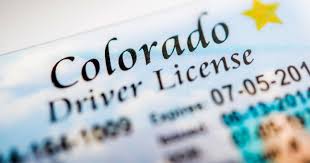 Massachusetts Fake ID
Massachusetts Fake ID
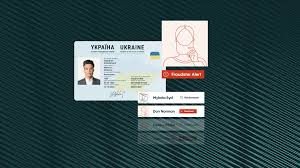 Ontario Fake ID
Ontario Fake ID
 North Carolina Fake ID
North Carolina Fake ID
 New Jersey Fake ID
New Jersey Fake ID
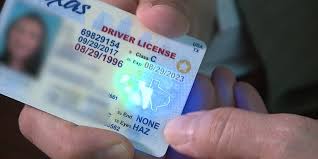 Kansas Fake ID
Kansas Fake ID
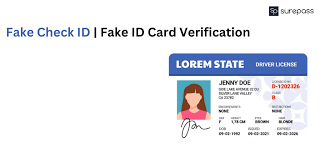 Delaware Fake ID
Delaware Fake ID
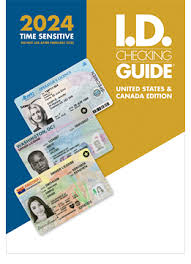 Arizona Fake ID
Arizona Fake ID
